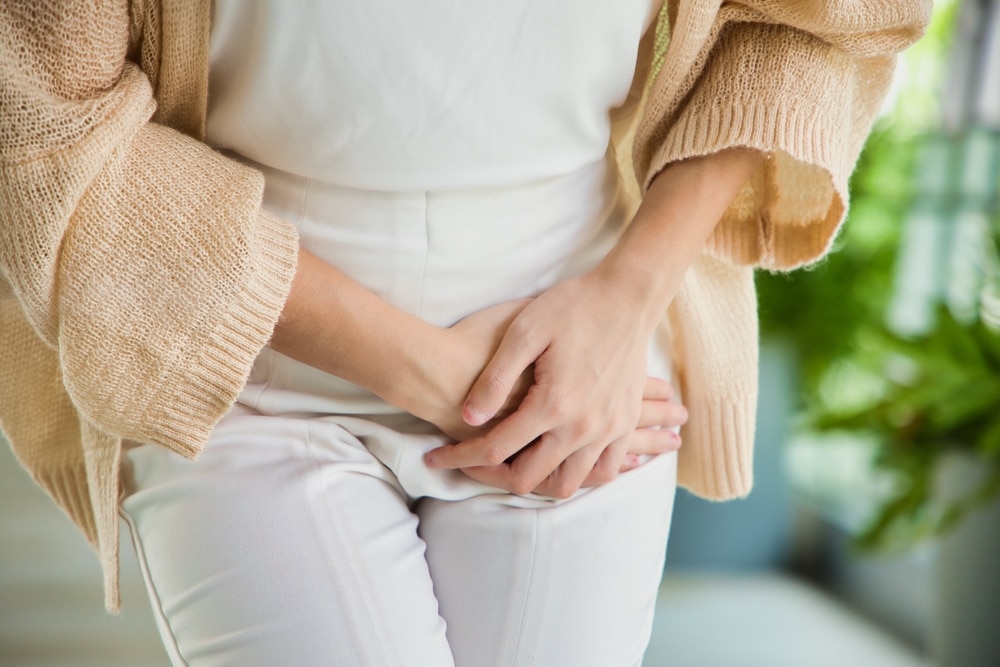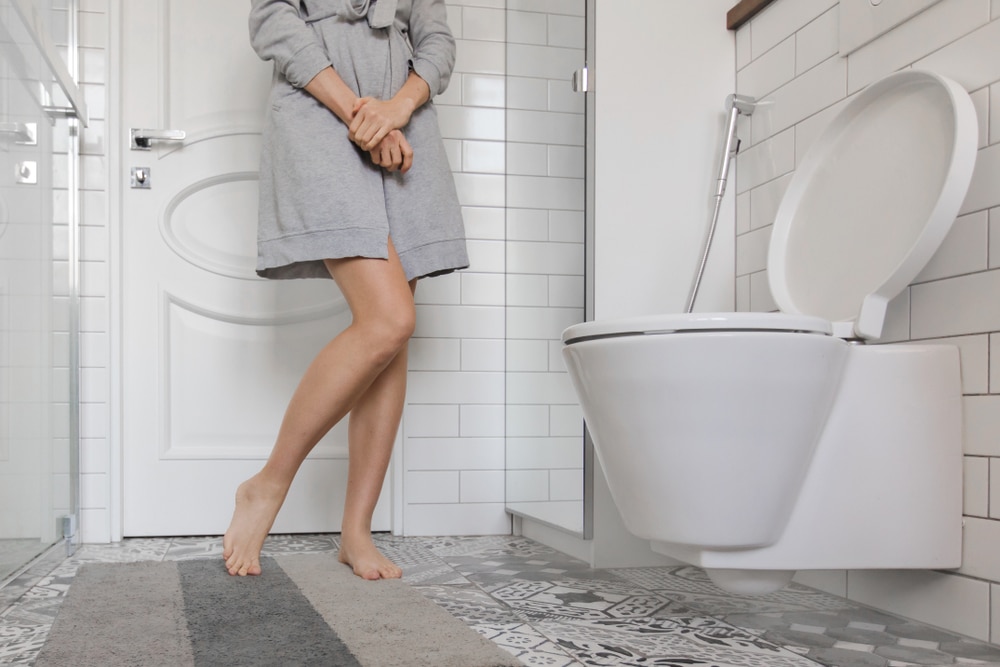Urinary incontinence is embarrassing, and it tends to become much more common as women get older. Northwest Women's Center, Houston's leading obstetrics and gynecology practice, helps women understand the cause of their incontinence and get the most appropriate services to address and resolve their symptoms.
What Is Urinary Incontinence?
Urinary incontinence is the involuntary loss of urine. In other words, you cannot control when you urinate.
This common condition can range from occasional urine leakage during activities like coughing or laughing to a sudden, strong urge to urinate that doesn't allow enough time to reach the restroom.

Here are some of the most important things to understand about incontinence:
- It occurs when the bladder muscles or the nerves controlling the bladder do not function properly.
- Urinary incontinence is not a disease but a symptom of underlying issues, such as:
- Weakened pelvic floor muscles
- Overactive bladder muscles
- Nerve damage
- It can affect men and women of all ages. However, it is more common in women, especially during pregnancy, after childbirth, or post-menopause.
Types of Urinary Incontinence
There are five main types of urinary incontinence, each with different causes and symptoms:
- Stress Incontinence: This type occurs when physical movement or pressure on the bladder causes urine leakage. Triggers include coughing, sneezing, laughing, exercising, or lifting heavy objects. It's caused by weak pelvic floor muscles or a weakened urinary sphincter.
- Urge Incontinence (Overactive Bladder): This type involves a sudden, intense urge to urinate followed by an involuntary loss of urine. Symptoms include frequent urination, including nighttime urination (nocturia). It's caused by overactive bladder muscles, neurological conditions, or infections.
- Overflow Incontinence: This type happens when the bladder cannot empty completely, leading to frequent or constant dribbling of urine. Symptoms include difficulty starting urination or a weak stream. It's caused by blockages, nerve damage, or an underactive bladder.
- Functional Incontinence: This type results from physical or cognitive impairments that prevent timely access to a restroom. Causes include conditions like arthritis, mobility issues, or dementia.
- Mixed Incontinence: This type is a combination of stress incontinence and urge incontinence. Symptoms include leakage triggered by pressure (e.g., sneezing) and sudden urges to urinate.
What Causes Urinary Incontinence in Women?
Many factors can cause or contribute to urinary incontinence in women. Incontinence becomes more common with age as hormone levels decline. However, one of the primary causes of incontinence is weakness in the pelvic floor muscles.
The pelvic floor is an interconnected band of strong connective tissues and muscles that helps hold the pelvic organs in place. If the pelvic floor becomes weakened or injured, it may no longer be able to support the pelvic organs. One or more organs may even drop out of their normal position and press into the vagina, causing a condition called pelvic organ prolapse.
The weakening of the sphincter muscles can also contribute to incontinence, as can nerve injury, some underlying chronic medical conditions, and even long-term use of some medications.
Women who have had multiple vaginal deliveries can also be more prone to urinary incontinence.
What Techniques Are Used to Diagnose Urinary Incontinence and Its Causes?
Diagnosing urinary incontinence and its causes involves a comprehensive evaluation that combines a physical exam, patient history, and specialized tests. At Northwest Women's Center, the following techniques may be used:
- Physical Exam and Pelvic Exam: Evaluates the health of pelvic organs and checks for signs of pelvic organ prolapse or muscle weakness.
- Urine Tests: Urinalysis checks for infections, blood, or other abnormalities that may contribute to incontinence.
- Bladder Stress Test: Assesses for urine leakage during coughing or physical exertion.
- Post-Void Residual Measurement: Measures urine left in the bladder after urination using ultrasound or a catheter.
- Urodynamic Testing: Evaluates bladder pressure, muscle function, and urine flow to identify issues like overactive bladder.
- Cystoscopy: A small camera examines the bladder and urethra for structural problems or blockages.
How is Urinary Incontinence Treated?

Lifestyle and dietary changes, medication, and even BOTOX® injections can be used to treat many types of incontinence symptoms. Pelvic floor-strengthening treatments like BTL Emsella® can also be effective. Those with more severe symptoms may require surgery to repair damaged muscles or to correct other issues.
FAQs
Yes, pelvic floor exercises like Kegels can help prevent or improve urinary incontinence. They strengthen the muscles that control the bladder.
Regularly practicing these exercises enhances pelvic muscle tone, reducing leaks, particularly in stress incontinence. Women who are pregnant, postpartum, or experiencing menopause may benefit the most.
Pregnancy can have long-term impacts on urinary incontinence. This is due to the strain placed on the pelvic floor muscles and nerves during pregnancy and childbirth.
Vaginal delivery, in particular, increases the risk by weakening pelvic muscles and tissues, which can lead to stress incontinence. Hormonal changes during pregnancy and postpartum recovery further contribute to symptoms.
Menopause contributes to urinary incontinence due to decreased estrogen levels. This decrease weakens the pelvic floor muscles, as well as the tissues supporting the bladder and urethra.
This hormonal change can reduce bladder control and lead to stress or urge incontinence. Menopause-related weight gain and aging muscles can further exacerbate symptoms.
Yes, obesity or weight gain is linked to urinary incontinence. This is because excess weight places added pressure on the bladder and pelvic floor muscles.
Increased pressure can weaken these muscles over time, leading to stress incontinence or worsening existing symptoms. Even modest weight loss can improve bladder control and reduce urinary leaks.
Why Choose Northwest Women's Center?
Northwest Women's Center is a premier obstetrics and gynecology practice in Houston, TX. We are dedicated to providing women of all ages with compassionate, advanced care. Our team includes two highly qualified physicians who are Fellows of the American College of Obstetricians and Gynecologists (FACOG), as well as OB/GYNs, nurse practitioners, and a certified nurse midwife.
Northwest Women's Center offers personalized, state-of-the-art care, from routine wellness exams to complex treatments and chronic condition management. Choose us for trusted, comprehensive women's health services in a supportive environment.
Schedule a Consultation in Houston, TX
Urinary incontinence may be common, but it doesn't have to disrupt your life. At Northwest Women's Center, we combine expertise with tailored treatments to address the root causes of incontinence and enhance your quality of life.
Don't let embarrassment or discomfort hold you back. Take the first step toward feeling confident and in control. Schedule your consultation today by calling 281.444.3440 or submitting our online form.
What People Say About Us!
"Always friendly staff especially my P.A. Judi Greer!"
Click here to read more reviews.